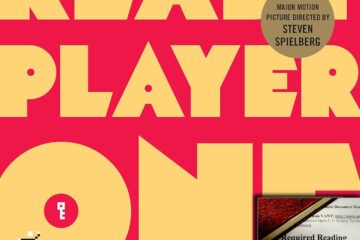“Fellow countrymen: at this second appearing to take the oath of the presidential office there is less occasion for an extended address than there was at the first. Then a statement somewhat in detail of a course to be pursued seemed fitting and proper. Now, at the expiration of four years during which public declarations have been constantly called forth on every point and phase of the great contest which still absorbs the attention and engrosses the energies of the nation little that is new could be presented. The progress of our arms, upon which all else chiefly depends is as well known to the public as to myself and it is I trust reasonably satisfactory and encouraging to all. With high hope for the future no prediction in regard to it is ventured.
“On the occasion corresponding to this four years ago all thoughts were anxiously directed to an impending civil war. All dreaded it ~ all sought to avert it. While the inaugural address was being delivered from this place devoted altogether to saving the Union without war insurgent agents were in the city seeking to destroy it without war ~ seeking to dissolve the Union and divide effects by negotiation. Both parties deprecated war but one of them would make war rather than let the nation survive, and the other would accept war rather than let it perish. And the war came.
“One eighth of the whole population were colored slaves not distributed generally over the union but localized in the southern part of it. These slaves constituted a peculiar and powerful interest. All knew that this interest was somehow the cause of the war. To strengthen perpetuate and extend this interest was the object for which the insurgents would rend the Union even by war while the government claimed no right to do more than to restrict the territorial enlargement of it. Neither party expected for the war the magnitude or the duration which it has already attained. Neither anticipated that the cause of the conflict might cease with or even before the conflict itself should cease. Each looked for an easier triumph and a result less fundamental and astounding. Both read the same Bible and pray to the same God and each invokes His aid against the other. It may seem strange that any men should dare to ask a just God’s assistance in wringing their bread from the sweat of other men’s faces but let us judge not that we be not judged. The prayers of both could not be answered ~ that of neither has been answered fully. The Almighty has His own purposes. “Woe unto the world because of offenses for it must needs be that offenses come but woe to that man by whom the offense cometh.” If we shall suppose that American slavery is one of those offenses which in the providence of God must needs come but which having continued through His appointed time He now wills to remove and that He gives to both North and South this terrible war as the woe due to those by whom the offense came shall we discern therein any departure from those divine attributes which the believers in a living God always ascribe to Him. Fondly do we hope ~ fervently do we pray ~ that this mighty scourge of war may speedily pass away. Yet, if God wills that it continue until all the wealth piled by the bondsman’s two hundred and fifty years of unrequited toil shall be sunk and until every drop of blood drawn with the lash shall be paid by another drawn with the sword as was said three thousand years ago so still it must be said ‘the judgments of the Lord are true and righteous altogether.’
“With malice toward none with charity for all with firmness in the right as God gives us to see the right let us strive on to finish the work we are in to bind up the nation’s wounds, to care for him who shall have borne the battle and for his widow and his orphan ~ to do all which may achieve and cherish a just and lasting peace among ourselves and with all nations.”
“Second Inaugural Address” by Faiza Khaled
In the midst of a bloody Civil War, Abraham Lincoln was reelected after defeating former General George B. Mcclellan by gaining 55% of the popular vote. The nation is currently in a state of dissent between the Union North and Confederate South. The North hoped for reunification and abolition while the South sought to preserve the system of slavery. After being reelected, Lincoln shared his plans and hopes for the future of the nation through his “Second Inaugural Address.”
Lincoln begins his address by acknowledging both sides of the war but also at the same time, backhandedly placing the blame of the war mostly on the Confederate by saying “one of them would make war rather than let the nation survive,” referring to the South that sought to succeed from the Union and enforce slavery. As president, Lincoln felt a duty to maintain the nation as one equal unit, but due to the Southern states seceding to the Confederacy and refusing to abolish slavery, they divided the nation in half. In his speech he also acknowledges slavery as being the “intrest [that] was somehow the cause of the war.” He incorporates religion by expressing his confusion from the fact that everyone “read[s] the same Bible and pray to the same God,” but both sides exploit God’s will and assistance against one another, in a way justifying their sides by stating that it is what God wants. Lincoln then goes on to quote the Bible directly and by doing this he claims that the war is a consequence for the offense of slavery and “as the woe due to those whom the offense came.” He stated that slavery had its period when it was “continued through His appointed time,” but now God desires for its removal.
In his speech, the overarching theme for his desires is to reach a state of reunification. He nears an end to his speech addressing his deep desires to “bind up the nation’s wounds,” and reach a point of long lasting peace “among ourselves and with all nations.”
“Second Inaugural Address by Abraham Lincoln (March 4, 1865) by Maggie Foster”
Lincoln’s second inaugural address comes just 41 days before he is assassinated and during the time the war is wrapping up. In the beginning of his speech, Lincoln addresses that he intends to keep the same values that he had during his last presidency. Although, he rarely acknowledges his presidency title in the speech. During the body of his speech, Lincoln uses the bible as logos and ethos rhetoric. He also spends a great deal of time talking about God’s plan and how God is often used as a way for people to get away with doing certain actions.
As mentioned before, in the start of his address, Lincoln still aims to correct the issues with slavery. He also includes parts about how the war is going. He states that, “with high hope for the future, no prediction in regard to it is ventured” (Lincoln). He means that in order to have hope and safety for the future, the war has to end, but he has no clue how. He has ideas for what he wants to do during his term, but he is mostly leaving the war up to the Union and the Confederacy. In truth, he has been through this war throughout his whole presidency and is done with it. He has seen so much sorrow and blood lost that he just wants an end. He wants the sides to realize all that they have done and that they need to work on getting the nation back together.
In the second paragraph, Lincoln reaches more into the issues of the war and how either side realized how gruesome it would get. Lincoln states that “all dreaded it, all sought to avert it”(Lincoln). He uses this line and the rest of this paragraph to explain to the people of America that this war was fought rightfully, but it got out of proportion. He offers sympathies for the soldiers who fought and does not put blame on either side. Finally, he wraps up this part by saying that one side would rather fight the war and the other would rather accept it.
In his third paragraph, he brings back in issues regarding slavery and uses quotes from the bible to talk about American Exceptionalism within each war party. He starts off with stating that one out of eight people are enslaved and most of this is attributed to the southern region of the United States. He goes on to talk about how this issue was most definitely a main cause for the war by simple stating “These slaves constituted a peculiar and powerful interest” (Lincoln). The slavery issues contributed to the fact that this war was also being fought over unity as a whole country. The United States is still a relatively new country and the division between the north and the south was not helping to further unity. He believes that this discrepancy in unity can be traced back to God and the bible. The use of God to prove one’s point became very heavily used during this time. Lincoln addresses the listeners that “both read the same Bible and pray to the same God, and each invokes His aid against the other” (Lincoln). This powerful line is powerful because he is right. How can God be used in both negative and positive ways? Is he not the same? It is the same book and somehow very different messages are being taken from it. Now, Lincoln does not try to play the role of God and say that he knows how the war will end and work out, but he is trying to show people that it’s nonsensical to use God in this way because in the end God wants love and peace not war and destruction. Now, he also infers that if God wants people to fight over their rights, rightfully so, that it is part of his plan, Lincoln just wants people to understand that it is God’s plan, not theirs and they should not take his word and use it to justify their war. In the last sentence of this paragraph Lincoln quotes the Bible saying, “the judgements of the Lord are true and righteous altogether”. This final, powerful quote greatly sums up his point here because the quote is instructing people to just pray and listen closely to God’s words and everything will work its way out.
In the final part of his speech, Lincoln concludes it by saying that he wants to end the division in the United States. He wants to “bind up the nation’s wounds, to care for him who shall have borne the battle…” and to just repair all the external and internal damage from the war (Lincoln). In total, Lincoln wants to use his time in office to end the war and create more unity among the American People.
The Second Inaugural by Bridget Durham
When Abraham Lincoln was elected to be president for a second term, he was shot forty-two days later. During his second presidency there was “less occasion for an extended address than there was at the first,” because the country had just concluded the Civil War. The war still encapsulated the minds of the American people, so Lincoln did have anything new to say to them. Lincoln states that, “[i] trust, reasonably satisfactory and encouraging to all with high hope for the future, no prediction in regard to it is ventured,” he says this because he is sure that the civil has come to an end and another one will not happen. He goes on to say that when he gave his speech four years ago, they feared an “impending civil war.” Lincolns last address was shadowed with the threat of war, and he draws this to the audience’s attention to show how nothing and everything has changed in the time he was president.
During the time of his first inaugural address, “both parties deprecated war, but one of them would make war rather than let the nation survive, and the other would accept war rather than let it perish, and the war came.” Lincoln states this to tell people that the war was initiated by the south because they would rather have their economy prosper and have the Union fall than get rid of slavery. To further back up his argument he says, “one-eight of the whole population were colored slaves, not disturbed generally over the Union, but localized in the southern part of it.” Furthermore, “these slaves constituted a peculiar and powerful interest.” Lincoln uses “peculiar” to passively jab at the southern states while also acknowledging that slavery was the issue. “All knew that this interest was somehow the cause of the war.” By stating that all knew slavery was the cause of the Civil War he attempts to prevent future generations from saying that the cause of the Civil War was something other than slavery. As the speech continues, he says that neither side expected the war to last as long as it had, and both hoped for a swift end.
During the war, “both read the same bible and pray to the same God…the prayers of both could not be answered—that of neither has been answered fully.” Both sides of the war believed that they had God on their side but no one’s prayers were fully answered. Lincoln states this because he is aware that neither side were fully in the right, and he wanted the American citizens to remain as one. He goes onto say that God has his own plan and that if he wills it, they will continue in-fighting; he knows that he does not have all the knowledge about what will happen and does not claim to. To further his statement he tells the American people that God is the only judge and “with malice towards none, with charity for all, with firmness in the right as God gives us to see the right, let us strive on to finish the work we are in, to bind up the nations wounds, to care for him…and cherish a just and lasting peace among ourselves and with all nations.” Lincoln concludes his speech by hoping for a new era of peace among the American citizens, that they will remain unified and become a peaceful nation


